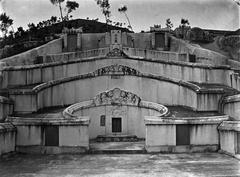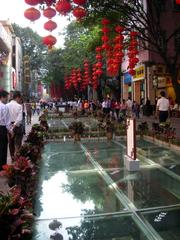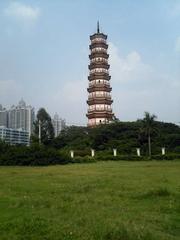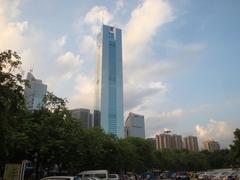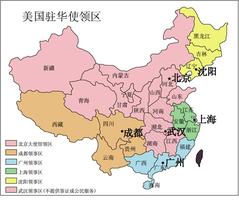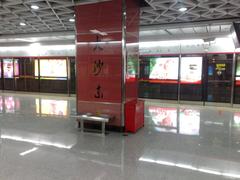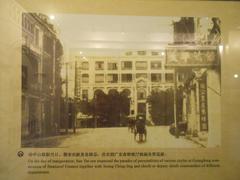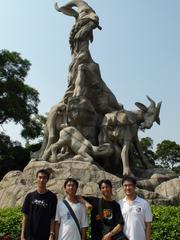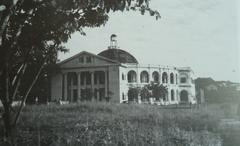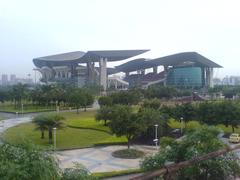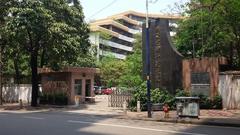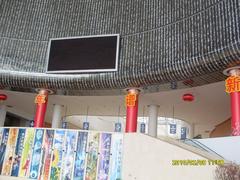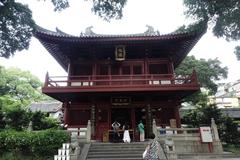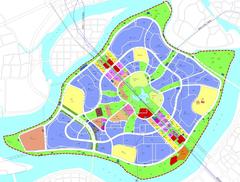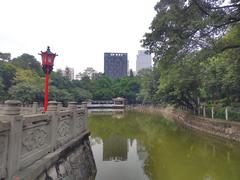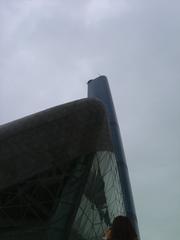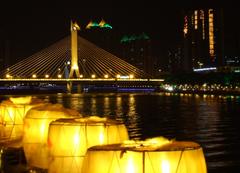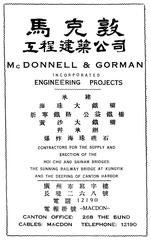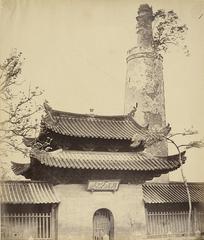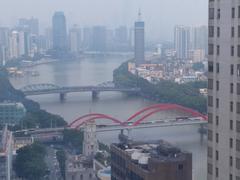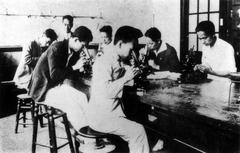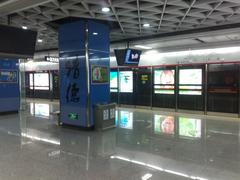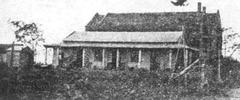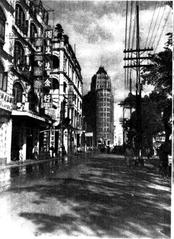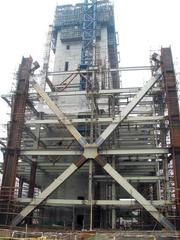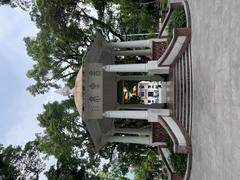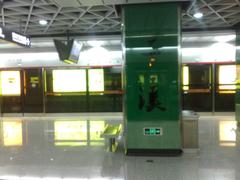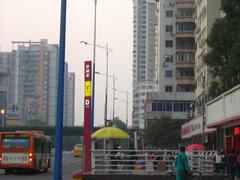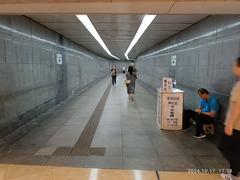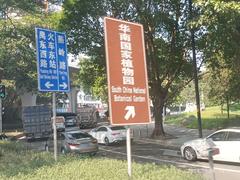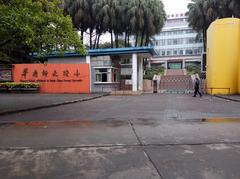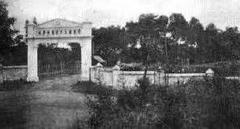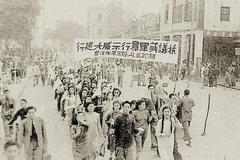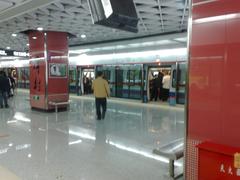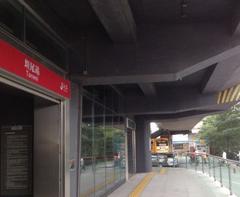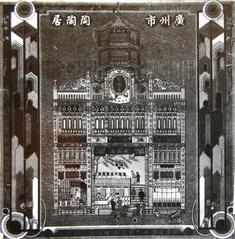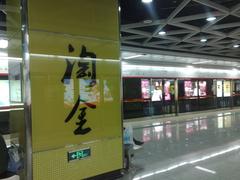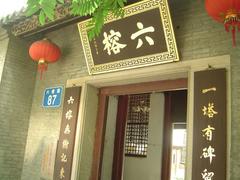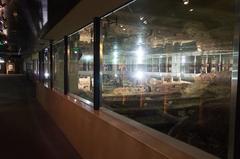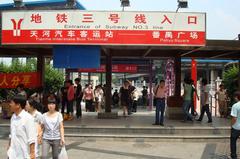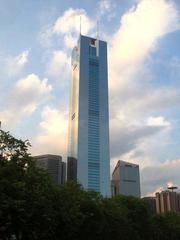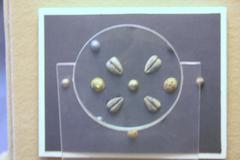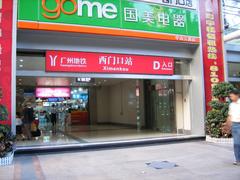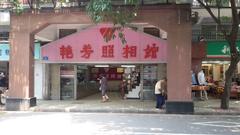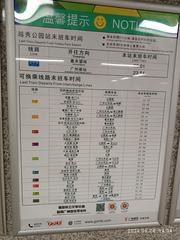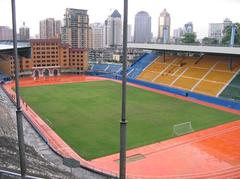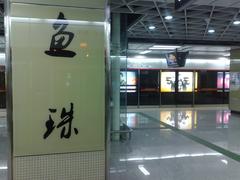Lutian Town Guangzhou: Visiting Hours, Tickets, and Historical Sites Guide
Date: 04/07/2025
Introduction
Lutian Town, part of Guangzhou in the People’s Republic of China, is a destination where rich history, vibrant cultural heritage, and striking natural beauty come together. This guide is designed to help travelers discover Lutian Town’s unique offerings—from its origins in the Qin Dynasty to its present-day role as a cultural and ecological hub. Here, visitors can explore preserved forests, traditional Lingnan architecture, and spiritual sites such as Ziyun Mountain, while immersing themselves in Cantonese opera, folk crafts, and authentic local cuisine. The guide also includes practical details about visiting hours, ticket prices, and accessibility, ensuring a seamless and informed visit.
Beyond Lutian Town, the greater Guangzhou region is celebrated for its historical landmarks like the Chen Clan Ancestral Hall, Liurong Temple, Shamian Island, and iconic modern sites such as the Canton Tower. Lutian’s culinary landscape is another highlight, reflecting the region’s agricultural abundance through dim sum, street food, and signature dishes. The town is also a model for sustainable tourism, promoting eco-friendly accommodations and responsible travel practices to protect its natural and cultural legacy.
For the latest visitor information and updates, it is recommended to consult the Official Lutian Tourism Website and trusted travel platforms such as TravelChinaGuide.
Table of Contents
- Discover Lutian Town: A Cultural Gem in Guangzhou
- Introduction: Why Visit Lutian Town?
- Historical Evolution
- Lingnan Heritage and Cultural Significance
- Practical Visitor Information
- Key Cultural Experiences
- Top Historical Sites in Guangzhou
- Major Festivals and Events
- Visitor Tips and Travel Advice
- Culinary Experiences & Local Markets
- Sustainable Tourism and Accessibility
- Enhance Your Visit with Visuals and Technology
- References and Official Resources
Discover Lutian Town: A Cultural Gem in Guangzhou
Why Visit Lutian Town?
Lutian Town, nestled in the heart of Guangzhou’s Lingnan region, offers travelers a compelling blend of historical depth, cultural vibrancy, and scenic landscapes. Renowned for its virgin forests, traditional architecture, and preserved folk customs, Lutian is an essential stop for anyone interested in Guangzhou’s heritage. This guide provides all the necessary information on visiting hours, tickets, cultural events, and travel tips to ensure an immersive experience.
Historical Evolution
Lutian Town’s roots date back to the Qin Dynasty (221–206 BCE), when it formed part of the ancient Nanhai Shire during the early expansion of the Chinese empire. Over the centuries, as Guangzhou (previously Panyu) became a prominent port city, Lutian’s rural environment supported urban growth through agriculture and resource extraction. The town’s strategic location near the Pearl River Delta has long linked it to southern China’s economic and cultural networks (TravelChinaGuide; TripChinaGuide).
A testament to its environmental stewardship, Lutian preserves over 400 mu (approximately 26.7 hectares) of virgin forest (ChinaWiki). The area is also rich in mineral resources, notably kaolin, which is important for local industries.
Lingnan Heritage and Cultural Significance
Traditional Architecture & Village Layout
Lutian Town embodies the essence of Lingnan culture, shaped by the interactions between Han settlers and indigenous peoples. The area is characterized by openness, harmony with nature, and adaptability (GuangzhouTour). Traditional dwellings follow feng shui principles, featuring oyster shell windows, carved stone door frames, and central courtyards to ensure ventilation and social cohesion.
Intangible Cultural Heritage
Lutian is committed to preserving intangible heritage, including folk songs, traditional crafts, and agricultural methods. Cantonese opera, recognized by UNESCO, is performed during major festivals, keeping the region’s cultural traditions alive.
Religious and Spiritual Sites
Dominating the landscape, Ziyun Mountain (1,341 meters) is famous for its purple cloud mists and spiritual significance. Local temples and ancestral halls are central to community life, hosting rituals and festivals that reinforce social bonds (ChinaWiki).
Practical Visitor Information
- General Visiting Hours: Most sites are open from 8:00 AM to 6:00 PM. Spiritual sites, such as Ziyun Mountain temples, may have specific hours—check official sources before your visit.
- Tickets: Entry to Lutian’s natural and cultural sites is usually free or low-cost; some attractions (e.g., Ziyun Mountain) charge a fee (approx. 20–50 RMB).
- Accessibility: Accessible by public transport from Guangzhou city center; mountainous areas may require moderate physical fitness.
- Travel Tips: Comfortable footwear is recommended for walking tours and hikes. Visit during festivals for unique cultural experiences.
Key Cultural Experiences
- Eco-Tourism: Guided tours of virgin forests highlight local flora and fauna (ChinaWiki).
- Ziyun Mountain Pilgrimage: Popular for panoramic views and spiritual ceremonies.
- Village Walks: Explore ancestral halls, traditional homes, and local crafts (GuangzhouTour).
- Festivals: Experience folk music, dance, opera, and traditional cuisine during major events.
Top Historical Sites in Guangzhou
Key Historical and Cultural Landmarks
Chen Clan Ancestral Hall (陈氏宗祠)
A masterpiece of Cantonese architecture, the Chen Clan Ancestral Hall is open daily from 8:30 AM to 5:30 PM (last entry at 5:00 PM). Tickets: ~10 RMB (discounts for students/seniors). The hall also houses the Guangdong Folk Art Museum, offering guided tours and exhibitions of local crafts. The site is especially vibrant during the Tomb Sweeping Festival.
Liurong Temple (六榕寺)
The Temple of the Six Banyan Trees is open 7:00 AM–5:00 PM daily, with free admission (donations welcomed). The Flower Pagoda stands as a spiritual symbol of the city.
Shamian Island (沙面岛)
Shamian Island is open 24/7 and features colonial-era architecture, churches, and riverside cafés. Entry is free.
Yongqingfang (永庆坊)
Yongqingfang is a lively historic neighborhood with artisan shops and food stalls. Open 10:00 AM–10:00 PM, free entry.
Natural Attractions
- Baiyun Mountain: Details — Open 6:00 AM–7:00 PM, entry 5 RMB, cable car 50 RMB round trip.
- Yuntai Garden: Details — Open 7:30 AM–6:00 PM, tickets 20 RMB.
- Haizhu Wetland Park: Details — Open 7:00 AM–6:00 PM, entry 15 RMB.
Modern Landmarks
- Canton Tower: Details — Open 9:30 AM–10:00 PM, tickets 150–300 RMB.
- Pearl River Promenade: Details — Open 24 hours, river cruises 120 RMB.
Museums and Art Spaces
- Guangdong Museum: Details — Open Tue–Sun, 9:00 AM–5:00 PM, free (online registration required).
- Museum of the Mausoleum of the Nanyue King: Open daily 8:30 AM–5:30 PM, tickets 15 RMB.
Major Festivals and Events
- Chinese New Year: Parades, dragon/lion dances, temple fairs.
- Tomb Sweeping Festival: Ancestral ceremonies at historical sites.
- Dragon Boat Festival: Races and traditional zongzi.
- Mid-Autumn Festival: Mooncakes, lantern displays.
- Guangzhou International Light Festival: City-wide light installations.
- Guangzhou Flower Festival: Floral markets and parades.
- Guangzhou Food Festival: Culinary showcases.
- Lotus Festival: Celebrating lotus blooms at Haizhu Wetland Park.
- Pearl River Night Cruises: Themed events year-round.
Visitor Tips
- Transportation: Metro and buses offer easy access; stations have English signage.
- Best Visit Time: October–November for pleasant weather and major festivals.
- Tickets: Book popular sites and cruises online in advance.
- Language: Basic Mandarin/Cantonese is useful; English signage is common.
- Cuisine: Don’t miss dim sum, roast goose, and street snacks.
- Etiquette: Dress modestly, especially at religious sites.
- Accommodation: Areas near Tianhe or Shangxiajiu are convenient.
Culinary Experiences & Local Markets
Cantonese Cuisine in Lutian Town
Lutian’s culinary traditions are rooted in the Pearl River Delta’s agricultural bounty, featuring fresh produce, seafood, and meats. Cantonese cuisine (Yuecai) is renowned for its subtle flavors and focus on fresh, high-quality ingredients. Essential experiences include traditional yum cha and dim sum (chinatravel.com), with specialties like har gao, siu mai, char siu bao, and cheung fun.
Signature dishes also include wonton noodles (livingnomads.com), roast goose, steamed fish, and claypot rice. Desserts such as ginger milk pudding and egg tarts round out the offerings.
Street Food and Markets
Lutian’s proximity to Guangzhou’s famous food streets lets visitors easily access Shangxiajiu, Huifu Gourmet Food Street, and Xihua Road, each offering a diverse range of snacks and traditional dishes (chinaeducationaltours.com; wanderlog.com). Wet markets open early and feature fresh produce, live seafood, and local specialties. Specialty markets like Qingping Market are renowned for traditional herbs and dried goods.
Dining Venues
- Traditional Teahouses: Ideal for yum cha and dim sum.
- Contemporary Restaurants: Modern takes on Cantonese classics, often with a farm-to-table focus.
- Recommended Eateries: Guangzhou Restaurant, Panxi Restaurant, and Bingsheng Pinwei Restaurant (wanderlog.com).
Culinary Events and Tips
- Best Times: Mornings for wet markets and dim sum; evenings for snack streets.
- Cash/Payment: Mobile payments (Alipay, WeChat Pay) are common; bring cash for small vendors.
- Hygiene: Choose food vendors with high turnover and visible cleanliness.
Sustainable Tourism and Accessibility
Getting There
Arrive via Guangzhou Baiyun International Airport, then reach Lutian by metro, bus, taxi, or ride-hailing apps (Trip.com; 12vpx.com). Cycling is also popular, with shared bikes available.
Accommodation
Choose eco-friendly hotels or guesthouses that support local communities and sustainability (Gray Group Intl; The Earth Safari; Climatesort).
Responsible Practices
- Use public transport or bikes to reduce your carbon footprint.
- Support local businesses and artisans.
- Minimize waste and use recycling facilities (NBS India).
- Respect local customs and dress codes.
Accessibility
Most major attractions in Guangzhou are wheelchair accessible, though older sites and rural Lutian may have limited facilities. Confirm accessibility in advance when booking.
Emergencies
- Police: 110
- Ambulance: 120
- Fire: 119
- Tourist Hotline (English): 12301
Enhance Your Visit
For interactive guides, updated maps, and visual highlights—including images of Lutian’s traditional architecture, markets, and landscapes—download the Audiala app. Explore more with virtual tours and real-time updates.
Frequently Asked Questions (FAQ)
Q: What are the visiting hours for Lutian Town’s main attractions?
A: Most sites open 8:00 AM–6:00 PM; confirm specific sites online.
Q: Are tickets required for Lutian Town?
A: Entry is usually free; some attractions charge 20–50 RMB.
Q: How do I get there from Guangzhou city center?
A: By metro, bus, taxi, or ride-hailing app (approx. 1 hour).
Q: Is Lutian Town accessible for travelers with disabilities?
A: Accessibility is improving; check with venues in advance.
Q: What’s the best time to visit?
A: Spring and autumn offer the best weather and festival experiences.
Conclusion
Lutian Town is a captivating destination where history, culture, cuisine, and nature harmoniously coexist. With its preserved villages, lush landscapes, and vibrant festivals, Lutian provides a window into Lingnan heritage and modern Guangzhou life. By planning your visit carefully—considering visiting hours, tickets, and sustainable practices—you can enjoy an enriching and responsible travel experience. For the best interactive tools and up-to-date information, download the Audiala app and follow local tourism channels.
References and Further Reading
- Discover Lutian Town: A Cultural Gem and Historical Site in Guangzhou, 2025, TravelChinaGuide (TravelChinaGuide)
- Exploring Lutian Town, Guangzhou: Visiting Hours, Tickets, and Top Historical Sites, 2025, TravelOfChina (TravelOfChina)
- Exploring Culinary Experiences and Local Markets in Lutian Town, Guangzhou, 2025, ChinaTravel (ChinaTravel)
- Lutian Town Guangzhou: Visiting Hours, Tickets, and Sustainable Tourism Guide, 2025, 12vpx Travel Guide (12vpx.com)
- Official Lutian Tourism Website, 2025 (Official Lutian Tourism Website)
- Audiala App for Cultural Tours in Guangzhou, 2025 (Audiala App)
